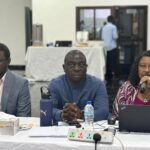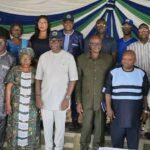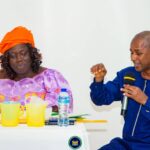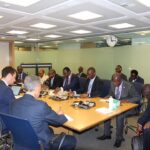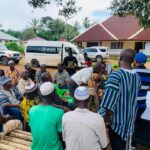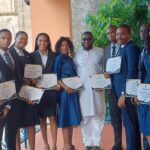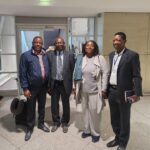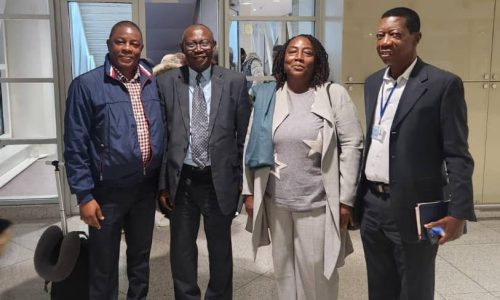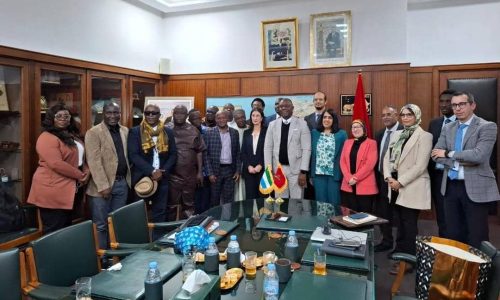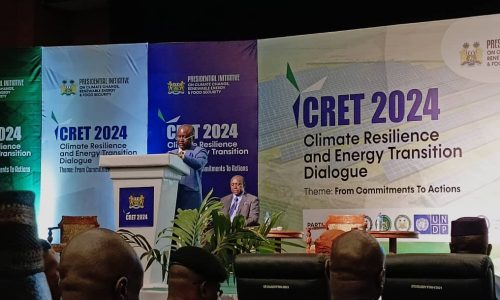By Feima Sesay ECOWAS Community Court of Justice 2024 has on Thursday 16th May 2024 concluded their International Conference under the theme “Enhancing the Role, Relevance and Effectiveness of the ECOWAS Court of Justice” through which they Strengthening of Synergies between the Court and National Stakeholders,with the adoption of a general report detailing recommendations on the conference. The conference, which commenced on Monday May 13, 2024 at the Freetown International Conference Centre on Aberdeen in Freetown, featured panel discussions and high-quality presentations from distinguished resource persons. Esteemed dignitaries, including Chief Justices, Ministers, Judges, legal experts and representatives from ECOWAS member states were all in attendance during the four days session and their collaborative efforts had culminated in to significant insights and recommendations aimed at enhancing the Court’s role and effectiveness within the ECOWAS integration framework. The president of the ECOWAS Community Court of Justice, Honorable Justice Amoako Asante in his closing remarks expressed mixed feelings thereby acknowledging the end of three days of fruitful discussions. He praised the conference’s success, thanking the Government and people of Sierra Leone for their support and hospitality and especially commended President Julius Maada Bio for his participation and opening of the conference. Justice Amoako highlighted the conference theme’s importance, emphasizing the need to enhance the ECOWAS Court’s role and relevance by building synergies with national stakeholders. The discussions covered seven sub-themes, with distinguished panelists and contributors expanding the knowledge base and addressing key issues related to the Court’s integration and collaboration with national courts. The conference aimed to generate constructive discussions around the strengths and weaknesses of the Court’s relationship with national stakeholders. Justice Amoako noted that the recommendations made during the conference would help address perceived gaps and improve relationships between the Court and Member States’ national courts. He expressed concern over efforts to amend the Court’s Protocol to introduce a rule on the exhaustion of domestic remedies, viewing it as a threat to the Court’s mandate and access to justice. He called for resistance against this proposed amendment and urged participants and civil society to advocate against it. The ECOWAS Court of Justice’s President appealed to Member States to domesticate the ECOWAS Revised Treaty and Protocols, enabling national courts to play a more effective role in the integration process. He stressed the need for harmonizing legal and judicial systems within the Community and for judicial dialogue between ECOWAS and national courts. Justice Amoako highlighted the importance of involving ECOWAS Community Citizens in the integration process and granting them greater access to the ECOWAS Court of Justice. He called for measures to restore the Court’s membership to seven independent judges and the judges’ tenure to five years, renewable for another five years, as initially prescribed. The Honourable Vice President of the ECOWAS Court of Justice, Hon. Justice Gberi-Be Ouattara, extended gratitude on behalf of the President, judges and staff of the ECOWAS Court of Justice. He paid tribute to His Excellency Julius Maada Bio, President of Sierra Leone, for his presence during the opening ceremony saying such elevated the prestige of the conference. The Vice President also thanked the Government and people of Sierra Leone for hosting the event and for their warm hospitality and support. The Vice President highlighted the intellectual exchange facilitated by the conference, praising the speakers, moderators and participants for their contributions to the discussions. He noted that the diverse perspectives enriched the debate and provided valuable insights into the topics covered. Justice Ouattara also expressed gratitude to the technical and support teams, including IT experts, interpreters, translators, sound engineers, media personnel, security staff and drivers, for their efforts in ensuring the smooth operation of the conference. He thanked the caterers and hospitality staff for their service and the organizing committees, protocol team, and rapporteurs for their dedication and efficiency. He offered a prayer for safe travels for all participants as they return to their respective destinations, invoking blessings on the Republic of Sierra Leone and its people. Acting Chief Justice of the Republic of Sierra Leone Hon. Justice Nicholas C. Browne-Marke, acknowledged the efforts of the President, Vice President, and Judges of the ECOWAS Court of Justice as well as the Judges of the Superior Court of Judicature in Sierra Leone. He emphasized the importance of the conference in enhancing understanding of ECOWAS law and practice. “I am particularly pleased that the court made it possible to provide training for our lawyers,” Justice Browne-Marke stated. He highlighted the need for local legal representation in cases before the ECOWAS Court, noting that many cases are currently argued by Nigerian lawyers. He expressed gratitude for the two-day training conducted during the conference, which he believes will empower local lawyers to better represent their clients in ECOWAS cases. Justice Browne-Marke further thanked the distinguished guests for their participation, which he said was crucial to reaching the conclusions presented by the Vice President of the Court. “Without your contribution, it would have been like us looking at ourselves in a mirror,” he remarked, underscoring the value of diverse perspectives in the conference’s final document. He concluded by expressing optimism that the conference would lead to greater adherence to the principles of justice in Sierra Leone, adding that they have learned a lot from what was discussed during the session emphasizing the beneficial effects of the conference on the Sierra Leonean judiciary. The ceremony was climaxed with presentations of awards to certain individuals, followed by presentation of law books to various legal institutions in Sierra Leone.




